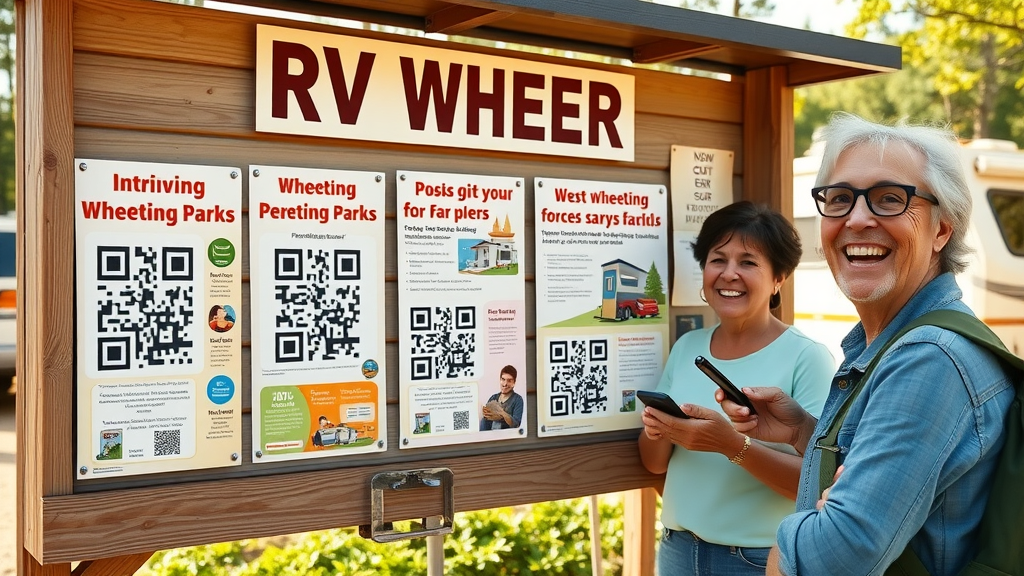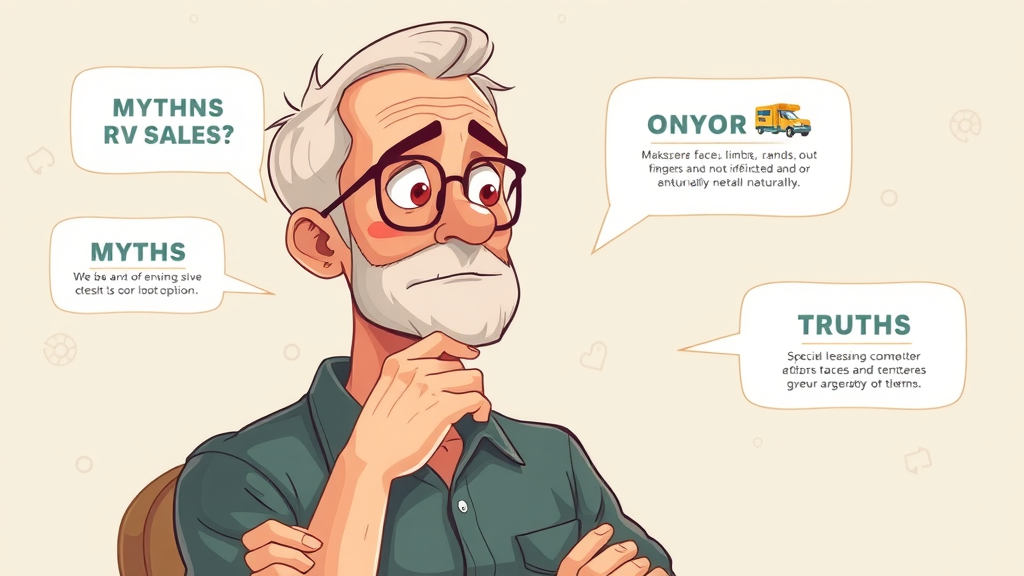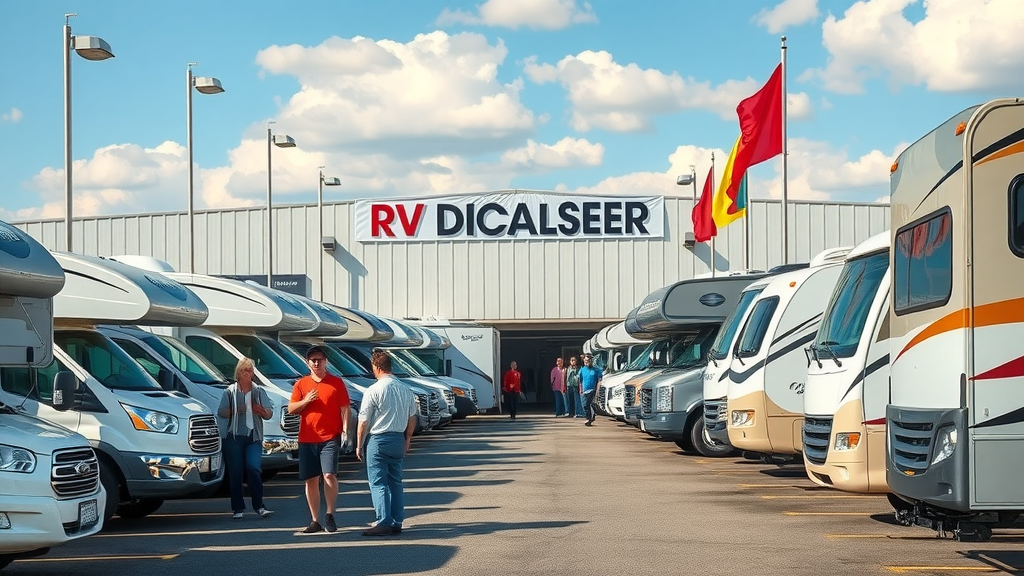Did you know that approximately 80% of recreational vehicles listed through RV Wheeler sell on the very first showing? This surprising statistic highlights the transformative power of the rv wheeler business model , a pioneering approach that connects private RV sellers directly with pre-qualified buyers. This article explores how this innovative business model challenges traditional dealership paradigms, providing unprecedented benefits for both sellers and buyers alike.
What You'll Learn
- The major challenges and statistics that define the recreational vehicle market
- The unique features and strategies behind the RV Wheeler business model
- How integration of banking data ensures fair pricing in RV transactions
- The benefits this model offers compared to traditional dealership sales
- Common misconceptions in the RV industry that RV Wheeler addresses
- Effective tips for sellers and buyers leveraging the RV Wheeler approach
Startling Facts About the Recreational Vehicle Market and Sales Challenges

The recreational vehicle (RV) market continues to grow as more Americans embrace outdoor adventures. However, selling an RV traditionally through dealerships often presents several obstacles . Owners frequently face lowball offers, unclear pricing, and the hassle of negotiating trade-ins that rarely reflect the true value of their vehicle. This situation leaves sellers with less than they deserve while buyers often pay inflated prices without transparent information.
As Daryl Jensen, founder of RV Wheeler, explains, there is a significant under-service in this market: "The purchase of an expensive recreational vehicle has absolutely no guidance, no support, nobody that you can contact other than the existing dealer network." This gap creates frustration and missed opportunities for RV owners looking to maximize their return.
Overview of the RV Wheeler Business Model and Its Unique Approach
"RV Wheeler is fair, RV Wheeler shares, and RV Wheeler cares," says Daryl Jensen of RV Wheeler, emphasizing the company’s commitment to transparency and fairness in RV sales.
The rv wheeler business model distinguishes itself by acting as a national peer-to-peer advertising platform specifically for recreational vehicles. Instead of traditional dealership sales—which often involve wholesale pricing and uncertain trade-in offers—RV Wheeler lists and sells RVs much like real estate, enabling direct connection between the private owner and qualified buyers.
One of the core innovations is how RV Wheeler incorporates banking data into the pricing process. This approach ensures prices align with real market values as determined by major lenders nationwide, granting sellers a fair retail price based on credible data. Further, by qualifying buyers who have evaluated their options and are cash-ready, RV Wheeler eliminates the tire kickers, lowballers, and scammers typical in conventional sales inquiries. This results in a smoother process, with the owner retaining control—answering questions and setting appointments—leading to an impressive 80% first-showing sale rate.
How RV Wheeler Integrates Banking Data for Fair Pricing

At the heart of the rv wheeler business model lies its unique integration of banking data, which forms a trusted and objective foundation for pricing. The banks hold comprehensive databases used by lenders to appraise the fair retail value of all mass-produced RVs, including motorhomes, toy haulers, camper trailers, and fifth wheels.
Daryl Jensen elaborates, "We own the same database that the banks and major lenders use to determine an average fair retail on every RV ... and that's what we use as our guidance." This method ensures that owners receive an equitable offer aligned with current market conditions, significantly reducing the guesswork and undervaluation that plagues typical RV sales.
The Role of Digital Marketing and Advertising in RV Wheeler’s Strategy

Another pillar of the rv wheeler business model is its extensive digital marketing footprint. RV Wheeler shoulders the entire advertising cost, distributing professional listings across over 150 websites, including major platforms such as RV Trader, Craigslist, and social media channels.
This broad reach guarantees an extensive audience for each RV, maximizing buyer interest and accelerating sales. Sellers benefit from expertly created ads showcasing their vehicles in the best light, thus enhancing buyer confidence and offering a seamless, no-hassle selling experience.
Benefits of the RV Wheeler Business Model for Sellers and Buyers

The advantages of the rv wheeler business model are substantial. For sellers, the primary benefit lies in receiving up to 50% more cash than traditional dealer trade-in offers. This is because RV Wheeler prices the vehicle retail-to-retail, rather than wholesale, transferring equity back to the seller.
Buyers also reap rewards by dealing directly with owners, often the original owners, who provide comprehensive vehicle history and transparent communication. This results in better pricing, considerably below some dealer lot prices, with greater confidence in the purchase quality.
Daryl Jensen states, "The owner is in control, answering questions and setting appointments, which leads to about 80% of RVs selling on the first showing."
Comparison with Traditional RV Dealership Sales and Trade-Ins

Unlike the typical dealership experience—marked by stress, low offers, and dealer-controlled sales—the RV Wheeler platform empowers owners to retain possession of their RVs and conduct sales on their own terms. Dealers traditionally purchase RVs at wholesale prices and attempt to resell at retail, extracting the profit margin. In contrast, RV Wheeler ensures sellers keep more equity and negotiate directly with informed buyers.
This approach erases many trade-in headaches dealers face, such as bad trades clogging used lots and service departments. Instead, RV Wheeler handles these sales externally, providing dealers commission incentives and ultimately cleaner inventories.
How RV Wheeler Supports RV Parks and Campgrounds

Extending beyond sales, RV Wheeler partners with RV parks and campgrounds to offer a mutually beneficial revenue stream. They provide free, branded posters featuring QR codes that campers can scan to learn about RV selling opportunities via RV Wheeler.
Campgrounds earn a 10% commission on sales resulting from their referrals, creating tens of thousands in potential income with minimal effort. This innovative program adds value to the visitor experience while monetizing existing foot traffic.
How RV Wheeler Collaborates with RV Dealers to Enhance Sales

Despite initial perceptions of competition, RV Wheeler complements dealership sales by resolving issues dealers face with difficult trades and service bottlenecks. Dealers benefit from increased service department revenue by offloading less desirable inventory to RV Wheeler, who sells at retail prices and directs buyers back to dealers with coupons or incentives.
Dealer Benefits: Increased Service Revenue and Cleaner Inventory
By channeling the sale of certain RVs through RV Wheeler, dealers avoid the pitfalls of bad trade-ins consuming service resources. They maintain cleaner lots primarily stocked with newer, more desirable inventory and generate additional income through service work from retail-price buyers, enhancing profitability and efficiency.
Common Misconceptions and Challenges in the RV Industry Addressed by RV Wheeler

The industry has long suffered from misconceptions such as undervaluation of used RVs, lack of independent sales guidance, and distrust between buyers and sellers. RV Wheeler directly addresses these by offering transparent pricing backed by banking data and by qualifying buyers to ensure serious offers.
Addressing the Lack of Independent Guidance in RV Sales

Unlike the traditional model where sellers are dependent entirely on dealer support, RV Wheeler acts as an independent consultant and facilitator, providing unbiased, fair market pricing and supporting sellers through the process without dealership conflict of interest.
Actionable Tips for Sellers and Buyers Using the RV Wheeler Business Model
Maximizing Value: Pricing and Negotiation Strategies
To benefit most from the rv wheeler business model , sellers should provide complete documentation and clear photos to enable compelling listings. Understanding bank-guided pricing helps set realistic expectations and prevents lowball negotiations. Buyers should leverage the qualified listings RV Wheeler offers to find deals backed by transparent pricing and seller honesty.
People Also Ask: Addressing Common Questions About RV Sales and Business Models
Why are RVs not selling?
Many RVs fail to sell due to inaccurate pricing, unqualified buyers wasting sellers' time, and a lack of transparency. The RV Wheeler business model solves these challenges by ensuring fair market pricing and connecting sellers with ready buyers.
What is the business model of the RV park?
RV parks primarily generate income by renting spaces to campers but can also benefit financially by partnering with RV Wheeler, earning commissions on RV sales generated from their customer base.
Is there money in RV sales?
Yes, especially when utilizing models like RV Wheeler's that maximize seller returns and reduce intermediary profit captures, thereby making transactions more lucrative for private owners and dealerships alike.
Is RV manufacturing slowing down?
While some sources speculate fluctuations, the overall recreational vehicle market remains robust, with continued demand underscoring the importance of efficient sales channels such as those RV Wheeler offers.
Comparison Table: RV Wheeler Business Model vs Traditional RV Dealership Sales
| Feature | RV Wheeler Business Model | Traditional RV Dealership Sales |
|---|---|---|
| Pricing Basis | Banking data guided fair retail pricing | Dealer set wholesale/trade-in pricing |
| Seller Control | Seller retains possession and manages sale | Dealer controls sale and pricing |
| Buyer Qualification | Buyers pre-qualified with cash in hand | No formal buyer qualification |
| Advertising Costs | Covered by RV Wheeler, no cost to seller | Often borne or discounted through dealer costs |
| Commission Structure | 5% buyer-paid commission included in price | Higher fees, often hidden in price markup |
| Sale Success Rate | Approx. 80% sell on first showing | Lower, due to inventory and pricing complexities |
| Support to RV Parks | Revenue sharing poster program with QR codes | No structured partnership program |
Key Takeaways from Daryl Jensen on the RV Wheeler Business Model
- RV Wheeler guarantees up to 50% more cash for private sellers compared to dealers.
- The business model is guided by banking data ensuring fair retail pricing.
- Buyer qualification screens eliminate lowball offers and scams.
- The service is 100% no cost to sellers; buyers pay a small commission.
- RV Wheeler supports RV parks with revenue-sharing poster programs to generate income.
- Collaboration with dealers reduces bad trades and service department bottlenecks.
Conclusion: Why Choosing RV Wheeler Makes Sense for RV Buyers and Sellers
Daryl Jensen concludes, "If you're not dealing with us, you're not getting what your RV is worth. You’re putting up with inconvenience and hassle that RV Wheeler eliminates."
The rv wheeler business model provides an innovative solution to long-standing issues in the recreational vehicle market. By combining trusted banking data, extensive digital marketing, buyer qualification, and empowering sellers to control transactions, RV Wheeler transforms the RV selling and buying experience into one of fairness, transparency, and profitability. Whether you are a seller seeking more value or a buyer wanting a better deal, RV Wheeler stands as a game-changing platform that redefines how recreational vehicles exchange hands.
Call to Action
Ready to experience the benefits of the rv wheeler business model ? Visit RV Wheeler's official website or call 877-744-1219 to list your RV today. Join thousands of satisfied sellers and buyers who have discovered a smarter, fairer way to sell and buy recreational vehicles.
 Add Row
Add Row  Add
Add 



Write A Comment